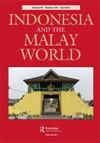废物人类学
IF 0.9
3区 社会学
0 ASIAN STUDIES
引用次数: 6
摘要
本文讨论了日惹特区(Daerah Istimewa Yogyakarta)农村和城市的塑料和其他固体生活垃圾,并在分析中整合了几个实践和理论观点。探索爪哇人的日常乱扔垃圾的做法,并分析他们与环境有关的特殊方式。这项研究表明,大多数参与者并不认为抽象的自然概念是至关重要的。相反,对个人来说,重要的是他们直接的社会环境。政府官员正在加大努力,提高人们对手头问题的认识,并鼓励市民对生活垃圾进行分类和回收。然而,自下而上的倡议,如以社区为基础的“废物银行”、公共清理和“回收时尚”街头嘉年华,解决了废物的各种社会、经济和情感方面的问题,已被证明效率更高。因此,从作者的角度来看,垃圾问题挑战了增长、现代化和人类与非人类关系的概念,因此,在爪哇的地方、社会和道德世界的动员中,我们看到了一条改变垃圾问题的试试性道路。然而,这并不一定会产生一种消费较少的生活方式,从而导致急需的减少浪费。本文章由计算机程序翻译,如有差异,请以英文原文为准。
An anthropology of waste
ABSTRACT This article discusses plastic and other solid household waste in both rural and urban Daerah Istimewa Yogyakarta (Special Region of Yogyakarta) and integrates several practical and theoretical perspectives in its analysis. An exploration of the everyday littering practices of the Javanese people is combined with analysis of their particular ways of relating to the environment. This study reveals that an abstract notion of nature is not seen as crucial by most actors. Rather, what counts for individuals is their immediate social environment. Government officials are increasing efforts to raise awareness of the issues at hand, and to encourage citizens to sort household waste and to recycle. However, bottom-up initiatives such as community-based ‘waste banks’, communal clean-ups and ‘recycle fashion’ street carnivals that address various social, economic, and emotional aspects of waste have proven much more efficient. Thus, a tentative path to transform the waste problem that, in the authors’ perspective, challenges the notions of growth, modernisation, and human-nonhuman relations is seen in Java in the mobilisation of the local, social and moral world. However, it is not certain that this will generate a less consumptive lifestyle leading to the much needed reduction of waste.
求助全文
通过发布文献求助,成功后即可免费获取论文全文。
去求助
来源期刊

Indonesia and the Malay World
ASIAN STUDIES-
CiteScore
2.00
自引率
0.00%
发文量
17
期刊介绍:
Indonesia and the Malay World is a peer-reviewed journal that is committed to the publication of scholarship in the arts and humanities on maritime Southeast Asia. It particularly focuses on the study of the languages, literatures, art, archaeology, history, religion, anthropology, performing arts, cinema and tourism of the region. In addition to welcoming individual articles, it also publishes special issues focusing on a particular theme or region. The journal is published three times a year, in March, July, and November.
 求助内容:
求助内容: 应助结果提醒方式:
应助结果提醒方式:


